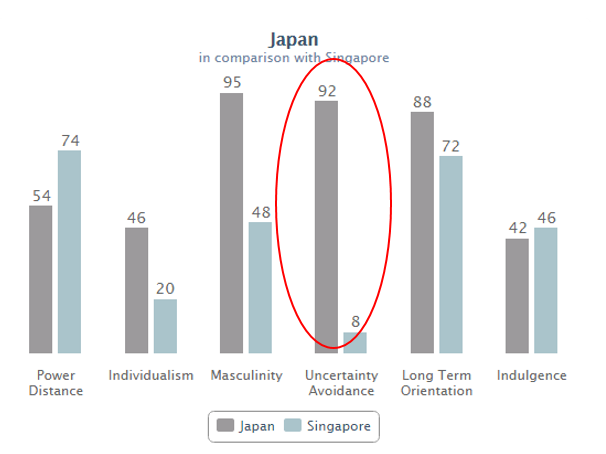If I re-locating to another country for example Australia, first thing I will miss my family, friends and the UAE with the time, I think I will have a lot of cultural shock that I will face such as, not easy to communicate because of the language, that will led to difficulty have conversation. Strange celebrations and customs, hard to find HALAL food because as we Muslims only we eat HALAL food.
Author Archives: mouzaalsuwaidi
Perception
Cultural mistakes that people could make in the UAE
- Shaking hands between two genders
- Eat from plate not front of you
- Wearing inappropriate clothing
- Drink alcohol in public places
- Close to each other during conversation especially between different genders.
- Eating during Ramadan in public.
Misunderstandings that Emiratis could cause when they travel abroad:
- Different Language
- Different customs
- Not respect the laws
Alvie Eats Soup
The story is about a young boy called Alvie, he only eat soup opposite his sister which she’s eat everything. His parent afraid about Alvie health, and they tried everything that could change this bad habit but without any achieve. One day the grandmother decides to visit Alvie and his family, she was a famous chef. The parent was afraid from her visit, because the parent does not want the grandmother to know about their son who only eat soup. The parent decided to invite the grandmother to the restaurant and ordered everything in the menu to fill the table so she can’t see Alvie. But when the grandmother said to the waiter she only eat peas the parent surprised.
This story represents the honor/shame dimension
Uncertainty Avoidance Index
This dimension focuses on how cultures adapt to changes with uncertainty, and how to deals with ambiguity. Some countries, planning out the future is mandatory; it’s about being prepared for what is to come in the future. However, there are countries who take a different approach to the unknown. Some countries choose to go with the flow, taking it one day at a time.
For example, in Japan there is a reasonable high uncertainty avoidance (92) compared to countries as Singapore (8). Japan are planning everything carefully they try to avoid the uncertainty. In Japan there is a society that relies on rules, laws and regulations. Japan wants to reduce its risks to the minimum and proceed with changes step by step.
Having a high or low uncertainty avoidance does not make one culture most dominate than another; it only reflects the different personalities within the culture. Although Singapore hold a lower uncertainty avoidance, it does not make it impossible to adhere to strict rules. Both cultures show a concern for the future, but how they act upon it may be different.

Bibliography
(n.d.). Retrieved from The hofstede centre : http://geert-hofstede.com/countries.html
Karp, J. (n.d.). Uncertainty avoidance. Retrieved from Encyclopedia of Management: http://mfiles.pl/en/index.php/Uncertainty_avoidance
National Culture. (n.d.). Retrieved from The hofstede centre: http://geert-hofstede.com/national-culture.html
Smit, C. (2012, Aug 13). Uncertainty Avoidance. Retrieved from Culture Matters: http://culturematters.com/what-is-uncertainty-avoidance/
Website Project
Vocabuloary
- Norms: something that is usual, typical, or standard.
- Taboos: proscribed by society as improper or unacceptable
- Habits: an acquired behavior pattern regularly followed until it has become almost involuntary
- Hostility: hostile behavior; unfriendliness or opposition
- Re-entry: an act of reentering
- Trivialize: make (something) seem less important, significant, or complex than it really is
- Romanticize: to make romantic; invest with a romantic character
- Customs: a habitual practice; the usual way of acting in given circumstances.
- Indigenous: originating in and characteristic of a particular region or country; native
- Ethnocentricity: Sociology, the belief in the inherent superiority of one’s own ethnic group or culture.
- Xenophobia: dislike or fear of people from other countries
- Prejudice: an unfavorable opinion or feeling formed before hand or without knowledge, thought, or reason.
- Refugees: a person who has been forced to leave their country for many different reasons.
- Acculturation: the process of adopting the cultural traits or social patterns of another group
stereotypes
https://www.youtube.com/watch?v=fTcSVQJ2h8g
The stereotypes here about white and black people, and the different deal with them, for example, find a job, different charged or tax and different opportunities for home buyers. They can be found starting at 00:17 seconds of the video.
Film Storyboard Project
Culture Clush
- Japanese are very serious at work and always want be on time, he asked her to be timely delivery, but the business women doesn’t take the matter seriously, and she answered ‘Yesterday’! Humor him.
- British brought gifts and that of their kindness, and during the party they talking about their work, and this is not acceptable in the Arab countries, where the work business stays at work.
- People in Hong Kong have a culture of respect the time, everything must be on time, so he decide to put rules for his worker.
- The time difference between the two countries, cause a problem in sending email on exact time.
- Chinese culture doesn’t use a hot towel to wipe their face, so they Surprising about what I did.
Henna


Henna is a type of Women’s Accessories in the past and even the present day, in the past Henna were simple design in the hand, which is small circle in the middle, nowadays we have a lot of design. we put the Henna in many occasion, such as weddings and Eid, when we put it we should wait around an one hour to be more darker.